Professional Supervision Options for Neurofeedback Therapy at Home
Discover how professional supervision enhances at-home neurofeedback. Expert guidance ensures safety, consistency, and results for your brain...
Discover the science behind brain training and unlock the potential of your mind from the comfort of your own home with affordable brain training tools.
What are the ways to improve cognitive health and emotional wellbeing that are doable from home and don’t cost a fortune? In this blog, we will explore the importance of brain training and the numerous benefits it offers. We'll provide insights into the science behind brain training and explore different types of programs available. You'll also learn practical tips for setting up your home brain training routine and staying motivated along the way.
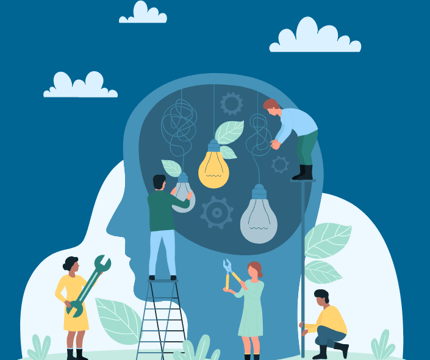 What is brain training?
What is brain training?Brain training encompasses a range of exercises, activities, and techniques to improve cognitive abilities, emotional regulation and bolster overall brain function. Its purpose lies in stimulating and challenging the brain through various means, thereby fostering mental fitness and emotional flexibility. Brain training is not a new concept, as example, the practice of meditation has been in existence for over 2600 years, but in recent decades as neuroscience as a field has grown with technology capable of studying brain health in our popular culture we have come to understand that exercising the brain, in the same way we exercise the body, promotes health in such areas as memory, attention, problem-solving, and critical thinking.
We understand how weight training works to build muscle mass but what are the mechanics behind brain training? The underlying principle is neuroplasticity and entails the brain's remarkable capacity to restructure itself by creating new neural connections and pathways throughout one's lifetime. By harnessing this plasticity, brain training exercises reinforce existing neural networks and establish novel ones, ultimately leading to enhanced cognitive function. The key with any program is consistency; brain training is learning. The more consistent we practice a new behavior, the more likely it will integrate into healthy brain habits, and the more quickly.

Diverse types of brain training programs cater to distinct cognitive and emotional skills and goals. Knowing what your goals are, how much time, effort and financial resources you want to commit, are also important in knowing which programs are best for you. We can divide the programs into two main areas of brain health and wellness: cognitive functioning and emotional well-being. On the cognitive side, some programs concentrate on techniques to improve memory, offering exercises that bolster the brain's aptitude for encoding, storing, and retrieving information. Such programs may encompass activities like memorizing lists, engaging in memory games, or employing mnemonic techniques.
Though brain training tends to refer to cognitive improvements, there are many training tools for improving emotional well-being. Examples are programs that train the brain to engage the relaxation response, such as mindfulness meditation or gratitude practice, are commonly used.
.png?width=430&height=360&name=brain%20health%20science%20(2).png) There are many studies demonstrating brain training leads to positive cognitive and emotional changes. On a structural level, research has convincingly demonstrated that regular engagement in cognitive training and those geared towards emotional state-change such as gratitude practice, induces structural and functional changes within the brain. Imaging has shown greater neural connectivity, improved neural efficiency, and elevated cognitive performance.
There are many studies demonstrating brain training leads to positive cognitive and emotional changes. On a structural level, research has convincingly demonstrated that regular engagement in cognitive training and those geared towards emotional state-change such as gratitude practice, induces structural and functional changes within the brain. Imaging has shown greater neural connectivity, improved neural efficiency, and elevated cognitive performance.
Moreover, studies have underscored the transferability of brain training effects to real-world cognitive tasks and emotional improvements. For instance, individuals partaking in memory training have exhibited enhancements not solely restricted to memory-specific tasks but also in everyday memory functions such as name retention, information recall, and organizational skills.
Studies on mindfulness practices, such as Mindfulness-Based Stress Reduction meditation, have shown marked decrease in stress, anxiety and depression. Gratitude practices have shown to improve overall mood and mental outlook.
Neuro-imaging techniques, including functional magnetic resonance imaging (fMRI), have supplied valuable insights into the neural mechanisms underlying brain training. These investigations have unveiled amplified activation within specific brain regions linked to the targeted cognitive skills, affirming brain training's capacity to elicit precise changes in neural activity.
Brain training activities and programs can be tailored to different ages and goals, offering a wide range of options for training at home, whether for focus, cognitive abilities, or emotional well-being. The main mental improvements sought out through brain training are: memory improvement, attention, and focus. Since the pandemic, another group seeking cognitive improvement through brain training is those with long-COVID brain fog. With a growing mental health crisis, brain training for improved emotional resiliency and regulation is gaining popularity. The main reasons people seek this training is for less emotional volatility, decreased anxious feelings, mental ruminations, and to have greater calm, positivity and improve negative, catastrophic thinking.
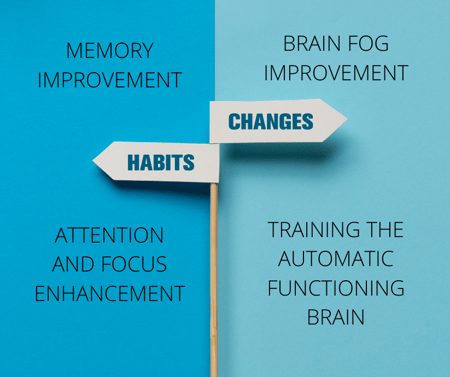 Brain Training Tools for Cognitive Improvements
Brain Training Tools for Cognitive ImprovementsHere are some examples of tools for cognitive improvements that can be done at home, starting with the activities that are less expensive and require less time and effort, moving to ones that require more financial and time commitment:
Memory Improvement:
There are memory games and puzzles such as: Sudoku, crossword puzzles, and memory matching games. Another set of tools for memory improvement are mnemonic techniques: Using acronyms, visualization, or chunking to remember information. Another more involved and expensive tool would be to learn a new language or musical instrument.
Attention and Focus Enhancement:
There are a number of tools one can use for increasing focus and attention. There are mindfulness and meditation for improving focus on the present moment and cultivating sustained attention. There are also concentration exercises such as solving complex problems in video game format. There are also apps that designed to improve focus and attention span.
Training the Automatic Functioning Brain:
Neurofeedback or Neurotherapy, also called EEG biofeedback technology that is designed to target the automatic functioning brain, the part in charge of impulsivity and stress reactions, to retrain the brain to be able to be calm and focus. Many parents are exploring neurofeedback as a support for their children's school performance and focus connected with ADHD.
Brain Fog Improvement:
Brain fog refers to a cluster of cognitive symptoms that can manifest as difficulties in focusing, memory problems, slow reaction time, and mental fatigue. A multi-pronged approach is most helpful including prioritizing restful sleep, brain tools for decreasing stress, such as mindfulness, and cognitive exercises such as puzzles for focus and memory games are found to be helpful to combat brain fog.
 Brain Training Tools for Emotional Regulation
Brain Training Tools for Emotional RegulationBrain training extends beyond cognitive goals and can also be highly beneficial for achieving emotional well-being. It aids in the enhancement of emotional intelligence, regulation of emotions, and overall emotional wellness. Here are various brain training activities that can be effective for emotional goals:
Emotional Regulation Techniques:
Cognitive Restructuring:
Social Skills Development:
Positive Psychology Interventions:
It is crucial to remember that brain training for emotional goals is a personal journey. Select activities that resonate with you and align with your specific emotional needs. Seeking guidance from mental health professionals can offer further support and tailored strategies that can be used at home.
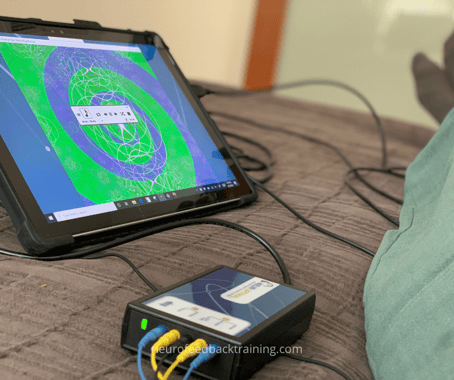 To establish an effective home brain training routine, there are several key steps to consider. First, it's important to assess your goals and needs. Determine what specific cognitive skills or emotional issues you want to improve and identify any challenges you may be facing.
To establish an effective home brain training routine, there are several key steps to consider. First, it's important to assess your goals and needs. Determine what specific cognitive skills or emotional issues you want to improve and identify any challenges you may be facing.
Creating a dedicated brain training space can enhance focus and productivity. Set aside an area in your home where you can engage in brain training activities without distractions. This space should be comfortable, well-lit, and equipped with the necessary materials. As well, it should ideally be in a place you enjoy being in your home or outdoors.
Scheduling regular brain training sessions is crucial for consistency and progress. Remember that with any learning, consistency is essential for an optimal outcome. If you practice French every day you will have much better outcomes than if you practice just a few times a week. Setting a fixed schedule helps establish a routine and ensures that brain training becomes a regular part of your daily or weekly routine.
Tracking progress and adjusting your routine allows you to monitor your improvements and make necessary adjustments along the way. Keep a record of your performance, noting any milestones or areas of progress. This tracking can help you identify patterns, adjust your training methods if needed, and stay motivated as you see your growth.
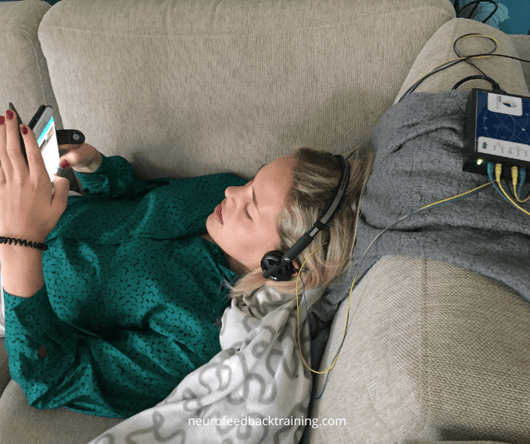 As noted in the lists above, when it comes to brain training, there are numerous free and affordable techniques available to enhance cognitive abilities and emotional regulation. Online brain training platforms and apps offer a convenient and accessible way to engage in cognitive exercises, such as BrainHQ and emotional support such as meditation apps and online programs. There are also many websites and personalities on social media sites such as YouTube who focus on educating for emotional well-being.
As noted in the lists above, when it comes to brain training, there are numerous free and affordable techniques available to enhance cognitive abilities and emotional regulation. Online brain training platforms and apps offer a convenient and accessible way to engage in cognitive exercises, such as BrainHQ and emotional support such as meditation apps and online programs. There are also many websites and personalities on social media sites such as YouTube who focus on educating for emotional well-being.
Another affordable option is to utilize free educational resources. Open online courses and tutorials provide opportunities to learn new subjects and engage in mental challenges. Podcasts and audiobooks offer a wealth of knowledge and entertainment while stimulating the brain. Educational YouTube channels cover a wide range of topics, allowing individuals to access informative and engaging content that can contribute to cognitive development.
With educational, self-help platforms targeting do-it-yourself cognitive techniques, designed to manage and improve emotional well-being it is important to seek out individuals and resources with advanced mental health degrees that are evidence-based. These techniques involve challenging negative or irrational thoughts and replacing them with more positive and realistic ones. Cognitive techniques, such as cognitive restructuring or reframing, can be practiced independently or with the help of self-help books, online resources, or smartphone apps. For those seeking to change severe cognitive or emotional issues, being under the care of a qualified health provider is important. Though it may be a larger financial investment, it may cost less in the long-term in improved functioning and well-being.
 Maintaining a healthy lifestyle is crucial for promoting optimal brain health, emotional regulation and cognitive function. One important aspect to consider is the impact of diet on brain health. Including brain-boosting foods in the diet can provide essential nutrients that nourish the brain and support cognitive function. These foods may include green leafy vegetables, fatty fish rich in omega-3 fatty acids, berries, tea, coffee, nuts, turmeric, and dark chocolate. It is important to prioritize high-quality, unprocessed foods that contain vitamins, minerals, and antioxidants while minimizing the consumption of processed foods and refined sugars, which can impair brain function.
Maintaining a healthy lifestyle is crucial for promoting optimal brain health, emotional regulation and cognitive function. One important aspect to consider is the impact of diet on brain health. Including brain-boosting foods in the diet can provide essential nutrients that nourish the brain and support cognitive function. These foods may include green leafy vegetables, fatty fish rich in omega-3 fatty acids, berries, tea, coffee, nuts, turmeric, and dark chocolate. It is important to prioritize high-quality, unprocessed foods that contain vitamins, minerals, and antioxidants while minimizing the consumption of processed foods and refined sugars, which can impair brain function.
In addition to a healthy diet, hydration plays a crucial role in cognitive function. Staying adequately hydrated ensures proper brain function and supports optimal cognitive performance. Alongside hydration, getting adequate sleep is essential for optimal brain performance. Sufficient sleep promotes cognitive abilities such as memory, attention, and problem-solving. Managing stress is also vital for better cognitive abilities. Chronic stress can negatively impact brain function, while effective stress management techniques can help maintain cognitive well-being .
Overcoming Challenges and Staying Motivated
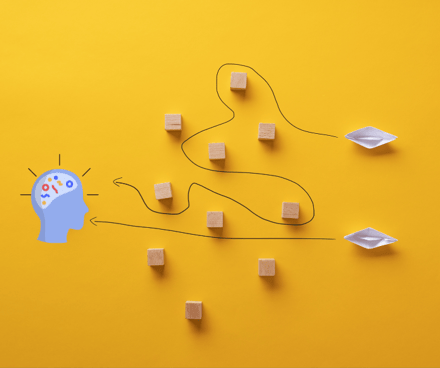 In the journey of brain training, it's important to address challenges and stay motivated to achieve optimal results. Dealing with distractions and staying focused is a common obstacle that individuals face. To overcome this, strategies like creating a dedicated and quiet space for brain training, using time management techniques, and minimizing external interruptions can help maintain focus.
In the journey of brain training, it's important to address challenges and stay motivated to achieve optimal results. Dealing with distractions and staying focused is a common obstacle that individuals face. To overcome this, strategies like creating a dedicated and quiet space for brain training, using time management techniques, and minimizing external interruptions can help maintain focus.
Finding motivation for consistent brain training is essential for long-term progress. Setting clear goals, both short-term and long-term, can provide a sense of direction and purpose. Additionally, connecting the brain training exercises to personal interests or real-life benefits can enhance motivation. It's crucial to establish a routine and prioritize brain training as a regular part of daily life.
Incorporating variety and novelty in the brain training routine is another way to stay motivated. Trying new exercises, exploring different brain training techniques, and challenging oneself with increasingly difficult tasks can prevent boredom and stimulate continued improvement.
Connecting with a community for support and accountability can be highly beneficial. Joining brain training groups, participating in online forums or social media communities, or even finding a brain training buddy can provide encouragement, share experiences, and foster a sense of belonging.
Lastly, celebrating milestones and tracking improvements is an effective way to stay motivated and maintain a positive mindset. Recognizing progress, whether it's improved cognitive abilities, enhanced memory, or increased focus, can reinforce the benefits of brain training and encourage continued effort.
In conclusion, brain training is a valuable and affordable endeavor that can greatly improve cognitive health and emotional regulation. By understanding the scientific foundations of brain training, setting clear goals, utilizing appropriate tools, and maintaining consistent practice, you can embark on an enriching cognitive journey. It is crucial to measure your progress, acknowledge achievements, and establish a customized home brain training routine. If you haven't begun your brain training journey yet, now is the perfect time to start and reap the multitude of benefits it has to offer. Remember, you have only one brain, so it is well worth investing in its care and enhancement!
Natalie Baker has over 25 years of experience as a licensed psychotherapist and has been a NeurOptimal® neurofeedback trainer since 2011. She is the founder of Neurofeedback Training Co., which offers in-person sessions and runs the largest nationwide home rental program for NeurOptimal systems. Natalie also teaches meditation and Buddhist psychology and specializes in working with anxiety, stress, ADHD, and trauma.
Discover how professional supervision enhances at-home neurofeedback. Expert guidance ensures safety, consistency, and results for your brain...
Discover how neurofeedback therapy at home improves emotional regulation and mood balance using professional-grade brain training systems.
Discover how home neurofeedback training helps reduce anxiety and manage stress naturally—safe, non-invasive brain training that complements therapy.
Be the first to know about new blogs